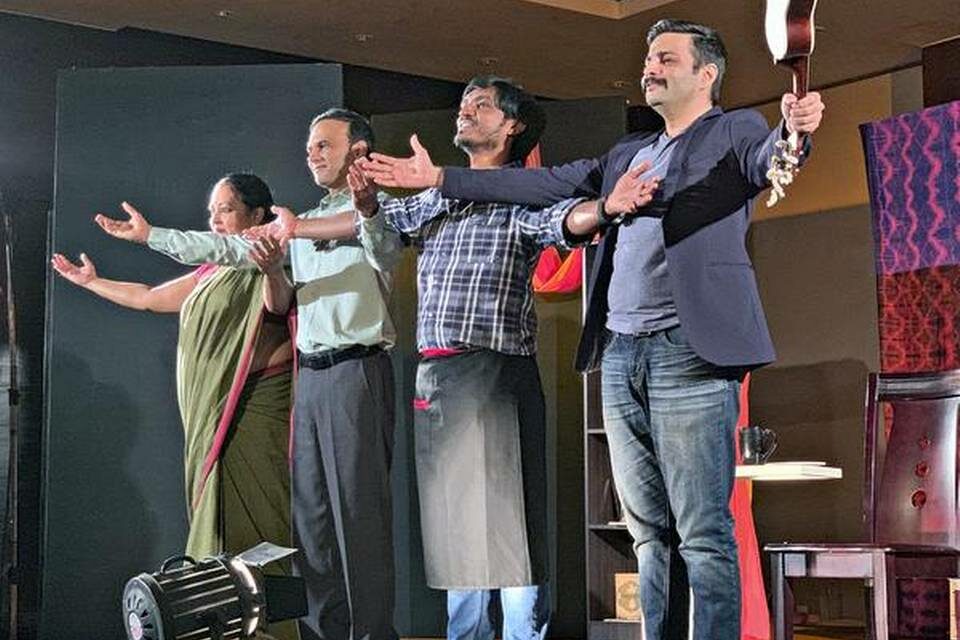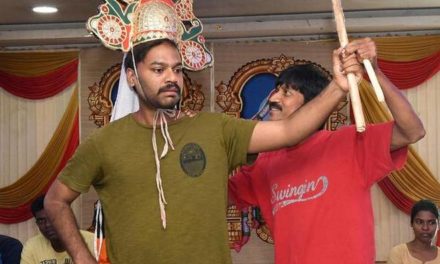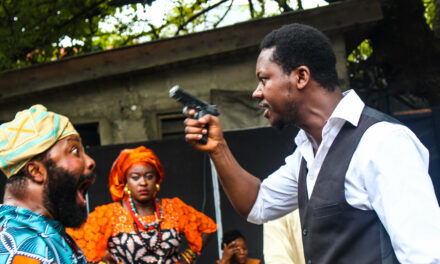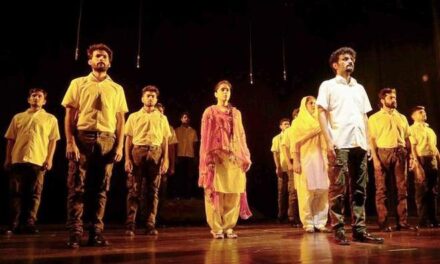Hidden within the body of work playwright Mahesh Dattani is usually cited for, is an underrated queer oeuvre that spans three decades and counting. His latest directorial effort and recent years have seen a proliferation of such outings, is an anthology of short plays titled Dance Me to The End of Love, produced by the Playpen Performing Arts Trust. This includes two pieces by Avantika Shankar, as well as Dattani’s The Reading (aka Rom.com), a millennial-era gay romance sparked off by an Internet chat and includes a charged encounter between two men at a reading of works by a feminist writer. The Reading started life as a short story Dattani wrote for The Indian Quarterly in 2013 and has been adapted for the stage by a Kolkata group. “Playpen had staged Avantika’s plays, and I felt my story [fitted in] with them,” says Dattani.
Shankar’s contributions to the production are companion pieces titled The Date and The Dated, which deal with the winsome goings-on at a rather unusual cafe, where romantic entanglements are seemingly the order of the day. Dattani makes use of two intrepid sutradhars (played by Sukhita Aiyar and Himanshu Talreja) to bring together the evening’s various narrative strands. Others in the cast include Ashish Joshi, Raul Valmiki, and Deepal Doshi.
Oddball works
It was in 1991, that Dattani, catching the first wind that brought queer expression in film (Bomgay), media (the shenanigans of Ashok Row Kavi) and theatre out of the closet, wrote Bravely Fought the Queen, whose privileged denizens straddle a spectrum of sexual proclivities. Its three stagings include a 1996 British production by Michael Walling. The playwright had imagined Lillete Dubey as the feisty protagonist, but she passed the role up. Of course, apart from many other Dattani plays, Dubey also produced On A Muggy Night in Mumbai in 1998. That play was based on the lives of gay men and was made into a film, Mango Souffle, by Dattani himself. “These were oddball works for those times, as apart from Mahesh Elkunchwar’s Garbo, very few plays featured gay characters,” he recalls. More than activism, Dattani was motivated with the urge of telling stories that rarely received an airing.
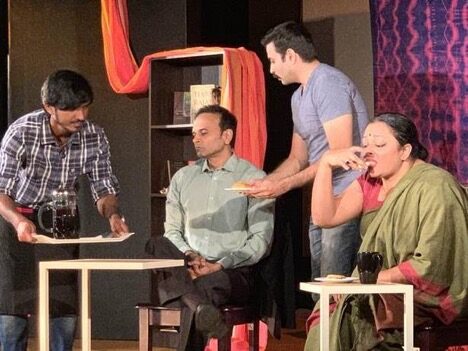
Dance Me to the End of Love
Although successful commercially, Muggy Night…received a polarized response — celebrated for the visibility it brought to a hitherto concealed community while being called out for prising open the pitiful self-loathing that lay at its very heart. This is akin to the response received on Broadway by Mart Crowley’s 1968 play, The Boys in the Band, which shares themes with Dattani’s play. Crowley’s play saw a 50th Anniversary revival last year, taking home a Tony for best revival of a play, while Dattani’s play has been all but forgotten, which is telling of the ways in which different queer movements archive their histories. Two radio plays for the BBC — Do the Needful, about a marriage of convenience between a gay man and a Hindu woman with a Muslim inamorato, and Seven Steps Around the Fire, about the oppression of hijras — round-up Dattani’s queer-themed output from the 1990s.
Away from the mainstream
It must be said that the past decade has seen a mushrooming of queer-themed works that give expression to an entire spectrum of queer realities. For instance, last month’s student showcase at the Drama School Mumbai saw a performance of Two Soldiers, a charming little piece on same-sex love in the barracks, set against a backdrop of nationalistic rhetoric. This week saw writer and lawyer Danish Sheikh stage a rehearsed reading in Delhi of his latest work, Pride, which recounts stories that take place in the aftermath of the Section 377 verdict. More than the euphoria of political victory, the piece highlights the dangers of assimilating queer intersectional identities into a mainstream that is still not ready to absorb them in its bosom.
Dance Me to The End of Love was staged at the Godrej Theatre, NCPA, on July 28 at 5 p.m. and 7 p.m.
This article was originally posted on The Hindu on July 25th, 2019. Read the original article.
This post was written by the author in their personal capacity.The opinions expressed in this article are the author’s own and do not reflect the view of The Theatre Times, their staff or collaborators.
This post was written by Vikram Phukan.
The views expressed here belong to the author and do not necessarily reflect our views and opinions.

